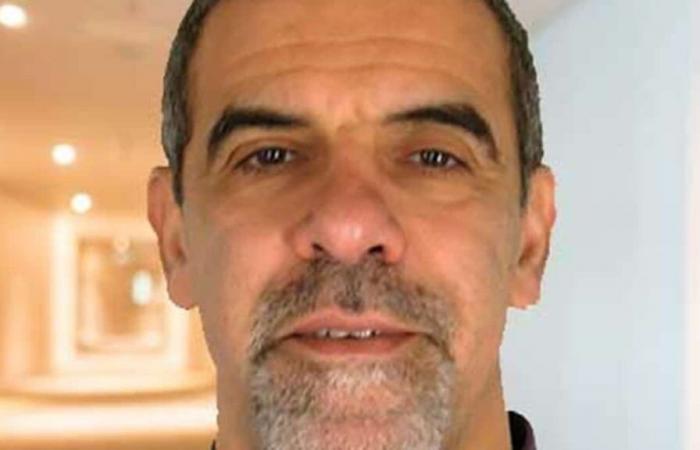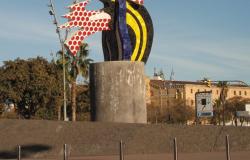Othmane Merah is an agricultural engineer and specialist in France in plants and the study of their physiology. This Franco-Algerian researcher is included in the international reference ranking of the prestigious American University of Stanford 2024. Trained in Blida, he contributed to the success of Dijon mustard and the launch of a coriander processing plant in France.
The French daily La Dépêche, which is based in Toulouse, considers this ranking as a “recognition of research activities, ideas, directions » by Othmane Merah, and his “ will have on a global level ».
Indeed, it is for the fourth year that Othmane Merah appears in the prestigious Stanford-Elsevier World's Top 2% Scientists ranking. A reason for satisfaction for the Paul Sabatier University Institute of Technology (IUT) in Auch where he works as a teacher in agronomy.
This ranking, based mainly on research, is established each year by Stanford University in the United States, explains Othmane Merah to Dépêche du Midi.
This ranking “ highlights the world's most productive and highly cited researchers across all disciplines “, he explained to the same media. “ It turns out that this ranking is logically dominated by scientists in medicine, chemistry, physics, astrophysics, mathematics, etc. Several Nobel Prize winners appear there. “, he added.
Each year, this ranking, also called the Top 2%, reviews the international influence of researchers in no less than 22 fields and 176 sub-fields. For 2024, the ranking was updated in October with a list of more than 210,000 researchers among more than eight million active scientists worldwide, or 2%.
No less than forty indicators are taken into account, including the number of publications, the number of articles signed by the researcher as author or co-author, the number of times the distinguished researcher's articles are cited in scientific journals.
This teacher-researcher was classified in the agronomy section for his articles concerning plant genetics and in particular the physiology of plants growing under stress conditions.
The feat is all the more remarkable as this ranking is dominated by the specialties of medicine, physics or astrophysics. “ We are only 500 agronomists to have been classified, I am delighted to be one of these people », Confided Othmane Merah to La Dépêche on November 6.
His 2001 article on the drought resistance of durum wheat varieties published by the prestigious Cambridge University Press has been cited up to 184 times in scientific publications. Today, Othmane Merah is a member of the editorial board of several scientific journals.
Warned by a combination of circumstances
The most surprising thing is that it was a combination of circumstances that allowed this Franco-Algerian researcher to discover that he had already appeared in this prestigious ranking for three years. “ I discovered this not long ago because a colleague posted a tweet saying he was happy to share his rankings “, he explained.
It turns out that as Othmane Merah relates: “ He's someone I trained, so I wondered if I was there this year too. And there, I discovered that I had been part of the ranking since 2020. »
It must be said that this researcher is more involved in his research work and development projects than in honorary mentions.
Contacted by TSA, he told us that he obtained his agricultural engineering diploma at the University of Blida and then went to specialize in France.
His research work contributed to the success of the famous Dijon mustard by participating in the creation of new mustard varieties in Dijon based on those from Canada. A mustard today used in all Mac Do establishments in France.
Specializing in the field of seeds and their adaptation to difficult environments, Othmane Merah is full of proposals for Algeria. He therefore suggests associating with wheat or corn crops species of local legumes whose roots develop mucilage which allows water to be stored.
Othmane Merah's current work aims to promote Algerian legumes, already adapted to stressful conditions, in association with grasses for livestock feed in steppe zones. He has already studied the native legumes of Occitanie (South of France) with certain success.
A factory to add value to coriander
Its work has a socio-economic impact. Nobody thought of the use of coriander seed, also widely used in Algeria.
The scientific multidisciplinarity of this relentless researcher allowed him to convince two large agricultural groups to invest in a coriander seed production and processing sector. This seed is used to produce a fine vegetable oil intended for human consumption, the essential oil is intended for the cosmetic industries.
The residue (the meal, rich in proteins) is a food very appreciated by animals. Thanks to this work, a processing plant (Sobiotech) was created in the suburbs of Auch with the creation of several jobs. He is a supporter of the approach which goes from “ fork to fork ».
Othmane Merah confides to TSA that “ my life is a story of encounters, that of Eliane Deléens and Philippe Monneveux, world leaders in the exploitation of genetic resources for the study of drought resistance ».
His meeting with Andrée Bouniols, “ a woman in the agronomic field who is a fierce defender of transversality, a true living encyclopedia » and then that of Zéphirin Mouloungui, “ a long-sighted chemist who will be a mentor and a source of ideas at the crossroads of disciplines », relates Othmane Merah.
Othmane Merah: this is what he can bring to Algeria
He says he is grateful to these “ beads » which allowed him « to be both a geneticist (genetic resources), a physiologist (plant resistance to stress) and chemists of bioactive plant molecules (fine chemical composition of plants) ».
Othmane Merah wishes to transmit his know-how in vegetable seeds to Algeria.
A domain strategic for this sector » agricultural, especially, he explains that “ Algeria imports almost all (96%) of seeds from abroad, thus imposing a lasting dependence of our agriculture on foreign companies ».
With colleagues, he designed the SemAl project for Semences Algérie and suggested the creation of a seed development and production company at the level of a pilot farm. A project which also aims to train specialized technicians and approvers supervising the local production of seeds and their distribution.
Convinced of the correctness of this project, he travels through the corridors of the agricultural services concerned and does not despair of seeing it succeed. “ We are starting to know my project “, he confides to TSA.
Excellence in his scientific research work, desire to transmit his know-how in Algeria, Othmane Merah is part of this category of researchers from the Algerian diaspora in France on whom the country's agriculture can count.
« I had the chance to meet exceptional people, I wish to share this knowledge, this knowledge received, and create meetings that make Algerian youth dream and participate » he declares.
ON THE SAME SUBJECT:
United States: enormous achievement of Algerian researcher Noureddine Melikechi






